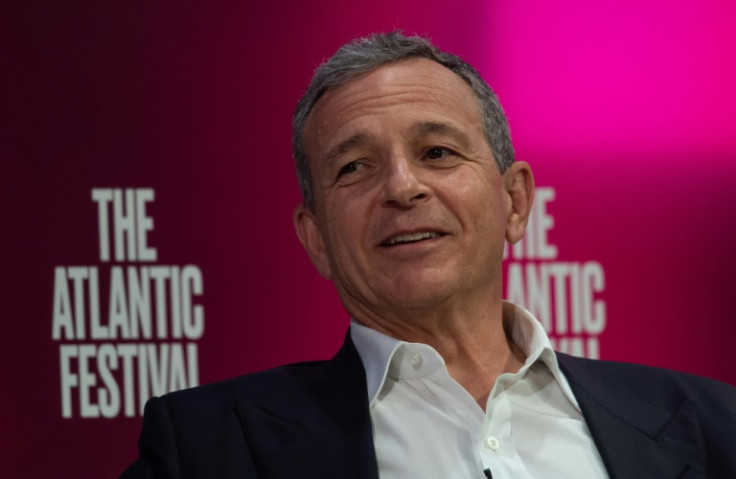
Disney reported higher revenues Tuesday on a strong performance by its theme parks division and an improving streaming business, but a write-down in the company's India business resulted in a small loss.
The company achieved profitability in its entertainment streaming segment following subscription additions of more than six million in Disney+, a landmark after years of losses.
But company officials signaled they expect the division to have a loss in the current quarter, in part due to weaker subscriber counts.
The entertainment giant also offered a cautious outlook on its parks division.
While Disney is still recording "healthy" demand, "we are seeing some evidence of a global moderation from peak post-Covid travel," Chief Financial Officer Hugh Johnston said on a conference call.
Shares of Disney fell sharply on the results, although analysts noted that the company's share price has risen significantly so far in 2024 prior to the report.
For its fiscal second-quarter ending March 30, Disney reported a $20 million quarterly loss following the $2.1 billion impairment in Star India. Revenues rose 1.2 percent to $22.1 billion.
The large reduction at Star India relates to combining its India business with India's Reliance Industries, a deal announced in late February.
Disney said it was on track for full-year profits on the entire streaming business after years of losses. This includes the ESPN+ sports network, which pushed the combined business into a loss in the just-finished quarter.
Disney Chief Executive Officer Bob Iger expressed confidence on streaming, in part because of an impending crackdown on improper password sharing.
"That will roll out in earnest across the globe in September," said Iger, who described feeling "quite bullish" in light of Netflix's success in addressing the issue.
Iger pointed to a spate of high-profile upcoming theatrical releases, including sequels of "Inside Out," "Moana" and a new movie in the "Alien" franchise.
"We're going to balance sequels with originals, particularly in animation," said Iger, who described the company as "leaning" back somewhat to sequels.
"There's a lot of value in sequels, obviously, because they're known and it takes less in terms of marketing," Iger said.
The entertainment giant cited Walt Disney World Resort, Hong Kong Disneyland and the company's cruise division as areas of strength in parks and experiences, but saw lower results at Disneyland Resorts.
The numbers come on the heels of a high-profile proxy contest in which CEO Iger successfully turned back a challenge from activist Nelson Peltz, who had sought a board seat, arguing the company had floundered in its responsibility to find a successor to Iger.
Asked about succession, Iger said the board is "heavily engaged" in the process and that he is confident "they will choose the right person at the right time."
Shares of Disney fell 10.4 percent by midday. The stock has risen nearly 30 percent so far in 2024 before results were released.
Kathleen Brooks, research director at XTB, said the sharp sell-off in the stock is likely due to the substantial share price increase this year. But the market is now "recalibrating" after Disney's mixed results, she said.








